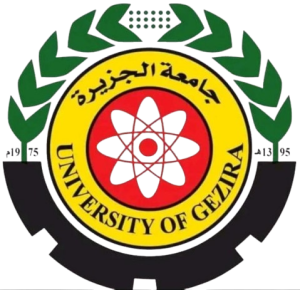Study Requirement & Study Plan
University of Gezira – Excellence in Education, Research, and Community Service
Activities
Academic Advising
Academic Rules and Regulations
Academic Calendar
Electronic Student Registration
- Homepage
- About The Faculty
- The Dean's Address
- Faculty Administration
- Organizational Chart
- Departments
- Centers of the Faculty
- Units
- Graduate Studies
- Quality Assurance and Accreditation
- Strategic Plan
Academic Degrees
The faculty awards a Bachelor of Medicine and Surgery (MBBS) degree over ten semesters. It also offers postgraduate diplomas, master’s degrees, and PhDs in basic medical sciences and family medicine, as well as clinical doctorates in various specialties in collaboration with the Sudan Medical Specialization Board.
Bachelor of Medicine and Surgery Curriculum
The faculty follows a semester system and the credit hour system with continuous training. Each semester consists of several courses taught as units.
The curriculum includes core courses, community medicine courses, and clinical sciences, in addition to university requirements. The faculty reviews its curriculum every five years and updates it every ten years, with the last revision in June 2012.
The medical curriculum is divided into three phases:
Phase One includes semesters 1, 2, and 3
The courses in this phase cover some of the basic sciences essential for students. Additionally, they address the environmental and social factors affecting human health, growth, and development. During this phase, students also complete most of the university requirements.
Phase Two includes semesters 4, 5, 6, and 7
This phase focuses on studying the human body’s systems and related issues. Students engage in learning basic medical sciences and clinical sciences in an integrated manner, solving problems related to each system of the human body. During this phase, students begin to acquire crucial knowledge and skills for disease diagnosis and treatment, which they will refine and master in the following years. The phase also involves an in-depth study of basic medical sciences, emphasizing their practical importance. Additionally, students are introduced to healthcare practices and complete field training in villages, as well as training in health centers and rural hospitals.
Phase Three includes semesters 8, 9, and 10
This phase focuses on clinical rotations, where students study clinical sciences such as pediatrics, obstetrics and gynecology, internal medicine, surgery, psychiatry, primary healthcare, and tropical diseases, with an emphasis on the importance of primary healthcare and the principles and practices of community medicine.
Students work in various departments as part of the team overseeing the unit or department, allowing them to refine and master their knowledge, skills, and behaviors. They begin hands-on training in patient care under the supervision of doctors and their assistants in each department.
